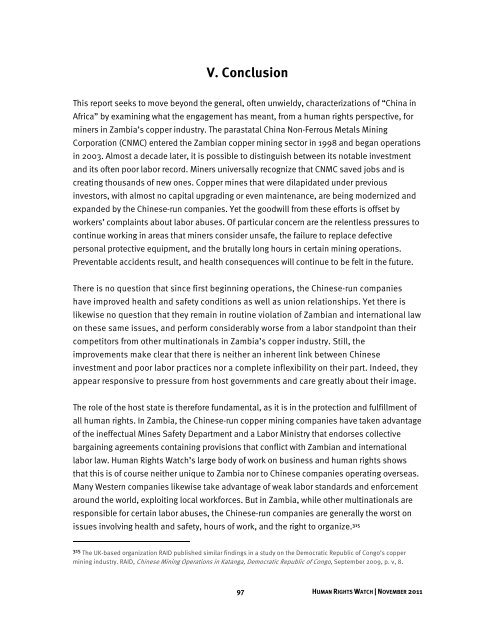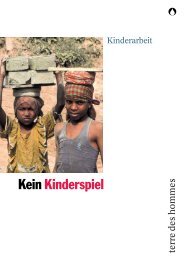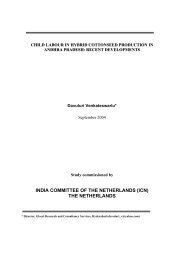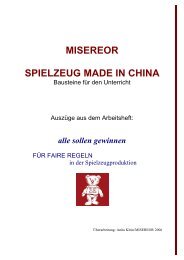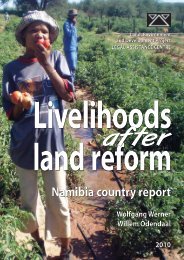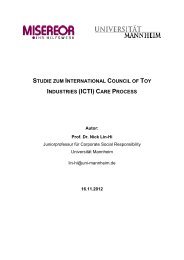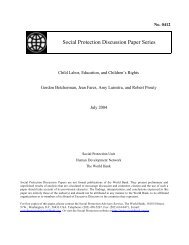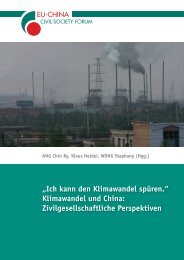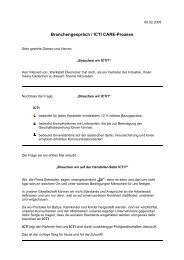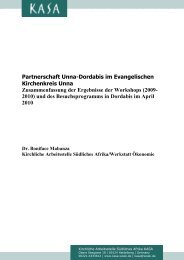“You'll Be Fired if You Refuse†- Human Rights Watch
“You'll Be Fired if You Refuse†- Human Rights Watch
“You'll Be Fired if You Refuse†- Human Rights Watch
You also want an ePaper? Increase the reach of your titles
YUMPU automatically turns print PDFs into web optimized ePapers that Google loves.
V. Conclusion<br />
This report seeks to move beyond the general, often unwieldy, characterizations of “China in<br />
Africa” by examining what the engagement has meant, from a human rights perspective, for<br />
miners in Zambia’s copper industry. The parastatal China Non-Ferrous Metals Mining<br />
Corporation (CNMC) entered the Zambian copper mining sector in 1998 and began operations<br />
in 2003. Almost a decade later, it is possible to distinguish between its notable investment<br />
and its often poor labor record. Miners universally recognize that CNMC saved jobs and is<br />
creating thousands of new ones. Copper mines that were dilapidated under previous<br />
investors, with almost no capital upgrading or even maintenance, are being modernized and<br />
expanded by the Chinese-run companies. Yet the goodwill from these efforts is offset by<br />
workers’ complaints about labor abuses. Of particular concern are the relentless pressures to<br />
continue working in areas that miners consider unsafe, the failure to replace defective<br />
personal protective equipment, and the brutally long hours in certain mining operations.<br />
Preventable accidents result, and health consequences will continue to be felt in the future.<br />
There is no question that since first beginning operations, the Chinese-run companies<br />
have improved health and safety conditions as well as union relationships. Yet there is<br />
likewise no question that they remain in routine violation of Zambian and international law<br />
on these same issues, and perform considerably worse from a labor standpoint than their<br />
competitors from other multinationals in Zambia’s copper industry. Still, the<br />
improvements make clear that there is neither an inherent link between Chinese<br />
investment and poor labor practices nor a complete inflexibility on their part. Indeed, they<br />
appear responsive to pressure from host governments and care greatly about their image.<br />
The role of the host state is therefore fundamental, as it is in the protection and fulfillment of<br />
all human rights. In Zambia, the Chinese-run copper mining companies have taken advantage<br />
of the ineffectual Mines Safety Department and a Labor Ministry that endorses collective<br />
bargaining agreements containing provisions that conflict with Zambian and international<br />
labor law. <strong>Human</strong> <strong>Rights</strong> <strong>Watch</strong>’s large body of work on business and human rights shows<br />
that this is of course neither unique to Zambia nor to Chinese companies operating overseas.<br />
Many Western companies likewise take advantage of weak labor standards and enforcement<br />
around the world, exploiting local workforces. But in Zambia, while other multinationals are<br />
responsible for certain labor abuses, the Chinese-run companies are generally the worst on<br />
issues involving health and safety, hours of work, and the right to organize. 315<br />
315 The UK-based organization RAID published similar findings in a study on the Democratic Republic of Congo’s copper<br />
mining industry. RAID, Chinese Mining Operations in Katanga, Democratic Republic of Congo, September 2009, p. v, 8.<br />
97 HUMAN RIGHTS WATCH | NOVEMBER 2011


